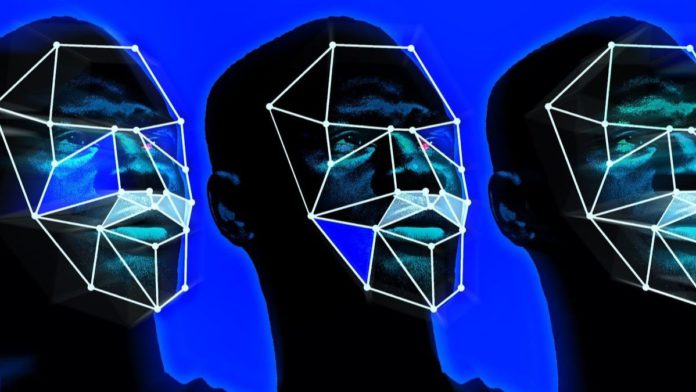The pros of new emerging technologies are always followed by the cons that accompany after leveraging them. While facial recognition was met with the promise that it will help with better biometrics, hence leading to effective security and monitoring, it is now viewed as a technology that invades personal freedom. In what is being labeled as a historic moment, the European Parliament has voted for a total ban on predictive policing and biometric mass surveillance.
The European Parliament stated in its explanation of the resolution that the use of AI by law enforcement currently poses a number of risks. This includes opaque decision-making, discrimination, privacy intrusion, challenges to personal data protection, human dignity, and freedom of expression and information.
These potential concerns are exacerbated in the sector of law enforcement and criminal justice, the European Parliament warned. According to the official statement, this is because mass surveillance using facial recognition may impair the presumption of innocence, the fundamental rights to liberty and security of the individual, as well as to an efficient remedy and a fair trial.
MEPs also decided to restrict social scoring systems like iBorderCtrl virtual border agent, the use of AI in court judgments, and private facial recognition databases, such as the ClearviewAI system, in the resolution passed on Tuesday. A majority of parliamentarians voted in favor of a comprehensive resolution on the use of artificial intelligence in criminal law and policing. The final vote passed 377-248, with 62 abstentions.
“This is a huge win for all European citizens,” said Petar Vitanov (S&D), the resolution’s author.
According to the MEPs, citizens should be monitored only when they are accused of committing a crime. They expressed worries about algorithmic bias in AI and concluded that both human supervision and legal protections are essential to combat prejudice. According to the Lawmakers, there is evidence that AI-based identification systems misidentify minority ethnic groups, LGBTI+ individuals, seniors, and women at a higher rate. As a result, they believe that algorithms should be transparent, traceable, and well documented, with open-source alternatives being utilized whenever possible.
Though Parliament passed the resolution, it is not legally obligatory. However, it comes as the European Union is working on new AI guidelines that would affect both the public and private sectors.
Brando Benifei (S&D), the primary negotiator for the AI Act, has asked for a total prohibition on facial recognition, as have practically all of his co-negotiators from other political parties in Parliament. This is in stark contrast to measures established in several EU member countries, eager to employ these technologies to strengthen their security forces.
The use of facial recognition software indeed escalated since the onset of the pandemic. However, face recognition software was already popular years before the pandemic, and its shortcomings have been well documented. Critics have exposed how police departments and government agencies across the globe have misused enormous databases of images in investigations.
On one side, due to evidence that the technology does not operate as well on people of color, companies have ceased or reduced their usage of it. On the obverse side, it is spreading as some federal agencies aim to utilize it more, and it is being deployed in places ranging from retail malls to accommodation venues.
Read More: UN warns that Artificial Intelligence can Threaten Human Rights
It’s encouraging to see even significant international organizations like the EP working to find a solution to the problem of unrestrained AI-powered facial recognition systems. Privacy and respect for citizens’ basic rights should be utmost priorities when deciding how or whether this technology should be rolled out to the rest of the world, and it appears that Parliament agrees. MEPs argue that face recognition isn’t ready for prime time and that a robust legislative framework to protect personal privacy must be created before police could consider deploying it.
The European Union executive had proposed draft legislation in April to regulate high-risk applications of artificial intelligence technology, which included a ban on social scoring and a blanket restriction on the use of remote biometric surveillance in public.
However, civil society, the European Data Protection Board, the European Data Protection Supervisor, and a number of MEPs swiftly expressed their dissatisfaction with the Commission’s plan.
Meanwhile, in the United States, there is no federal policy on the legal use of face recognition technology. While Congress has expressed their outrage on various issues to CEOs of Facebook and Google, legislators are yet to translate that anger into designing meaningful privacy legislation, which also focuses on biometric monitoring restrictions.
However, passing privacy legislation won’t suffice as critics fear Silicon Valley lobbyists will influence its content excessively. This would imply that the government may agree to pass a bill that still favors misuse of facial recognition software by legal and federal houses and the corporate companies who scavenge private data. Even China has created a national set of guidelines on the ethical use of AI, it is still full of loopholes.
Because the ‘Artificial Intelligence Act’ is still being discussed and developed, the European Parliament’s resolution is just catalyzing at this time. The MEPs are sending a statement about what will be acceptable and where further protection should be implemented.
The European Parliament’s decision on AI mass surveillance comes only days after UN High Commissioner for Human Rights Michelle Bachelet called for a prohibition on the deployment of AI systems that violate human rights rules.
According to Bachelet, the sale of AI systems, like face recognition systems that monitor individuals in public areas, should be postponed until appropriate anti-violation procedures are in place.


